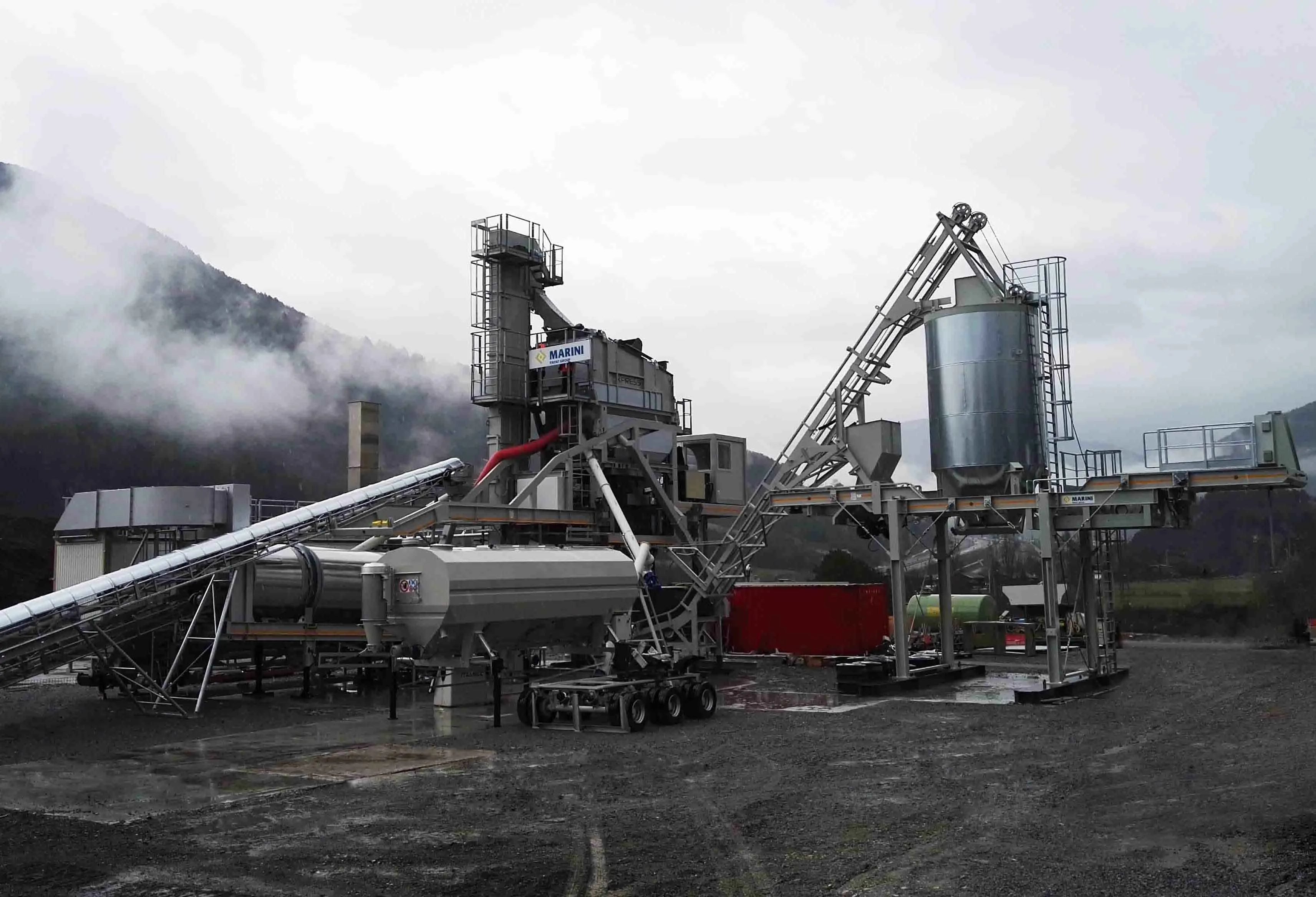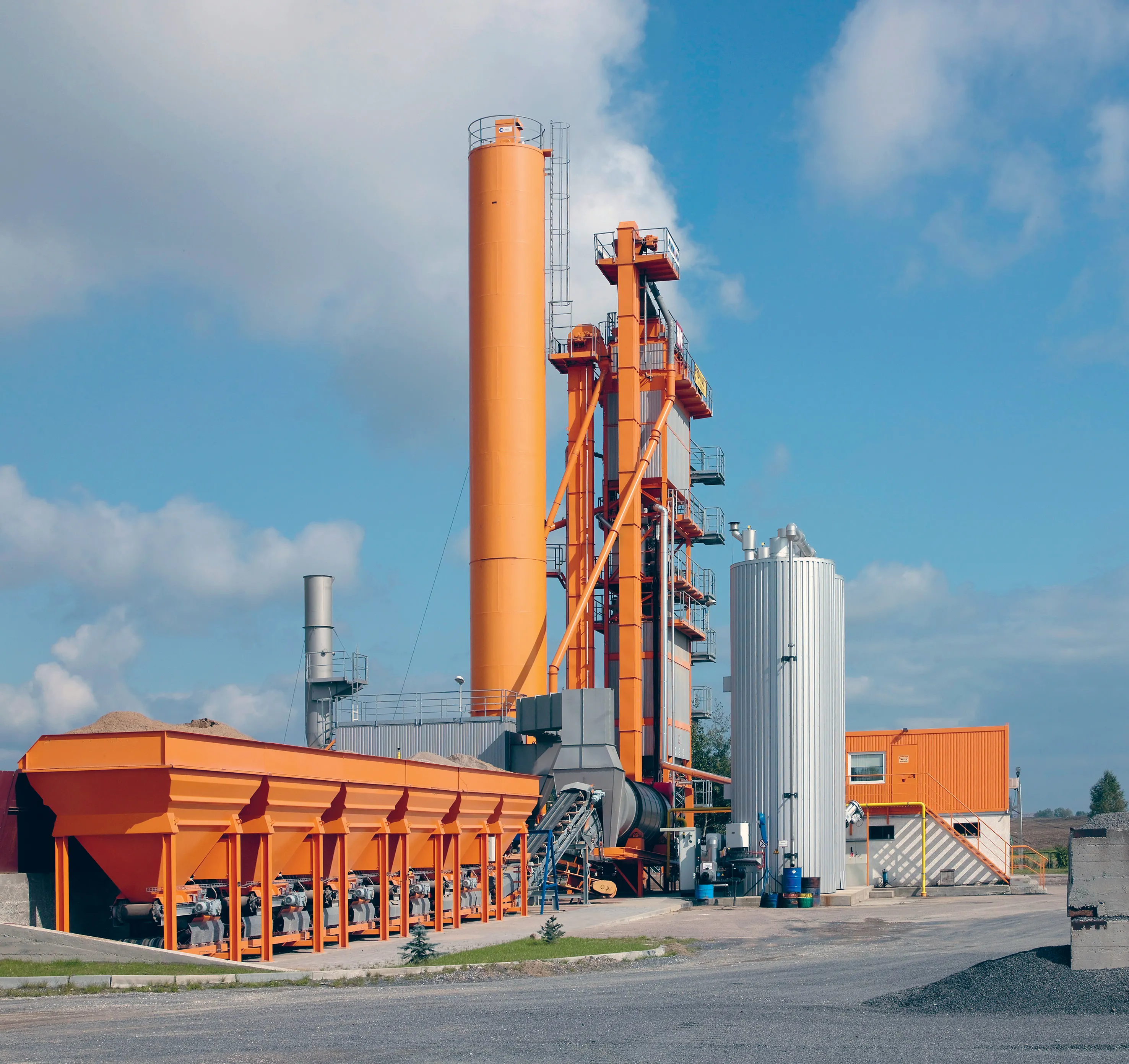A challenging road construction project is being carried out in Italy within a tight timeframe, with assistance from a new Marini asphalt plant. The project is for the Salerno-Reggio Calabria highway and the work has to be completed before the end of 2016. Local contractor Bulfaro is carryiing out the work to complete surfacing work to the Macrolotto 3.2; a 40km section of the highway between Laino Borgo and Campotenese. This section of the route is at an altitude of over 800m but the work was complicated b
January 24, 2017
Read time: 3 mins

A challenging road construction project is being carried out in Italy within a tight timeframe, with assistance from a new 273 Marini asphalt plant. The project is for the Salerno-Reggio Calabria highway and the work has to be completed before the end of 2016. Local contractor Bulfaro is carryiing out the work to complete surfacing work to the Macrolotto 3.2; a 40km section of the highway between Laino Borgo and Campotenese. This section of the route is at an altitude of over 800m but the work was complicated by the fact that the road runs through the Pollino National Park situated in the Calabrian Apennines.
The Italian government set the tight time schedule for the work to be completed and Bufaro took on the surfacing work on behalf of CMB Ghella. The contractor realised it would require a highly mobile, versatile and productive plant for the job and opted to utilise the Marini XPRESS 2500 as a result.
The plant comprises separate trailer units for the cold-feeders, the dryer, the filter and the mixing tower with the hot elevator. A key feature is that the plant can be erected without the need of a crane, which was highly important given the location of the working area for this project. The mixing level is raised up by hydraulic jacks while the screen, transported at the back of the trailer to ensure the unit remains within transport restrictions, is winched on tracks into position above the aggregate hopper.
For this job the machine was specified with five cold feeders, two bitumen hot-oil tanks, one 30m3 self-erecting silo and one 25m3 mobile asphalt storage bin. The plant can deliver a maximum production level of 200tonnes/hour, with an average production over 160tonnes/hour. A high percentage amount of RAP can also be used through the recycling feed into the dryer drum and the mixer.
For this job the plant has already delivered 110,000tonnes of asphalt, comprising both binder and base. This was laid over two and a half months, with up to 10% RAP in the mixer and 20% in the dryer. Once the project is complete the contractor will have produced close to 200,000tonnes of asphalt, including base, binder and wear course and the project is well on track to completion.
The Italian government set the tight time schedule for the work to be completed and Bufaro took on the surfacing work on behalf of CMB Ghella. The contractor realised it would require a highly mobile, versatile and productive plant for the job and opted to utilise the Marini XPRESS 2500 as a result.
The plant comprises separate trailer units for the cold-feeders, the dryer, the filter and the mixing tower with the hot elevator. A key feature is that the plant can be erected without the need of a crane, which was highly important given the location of the working area for this project. The mixing level is raised up by hydraulic jacks while the screen, transported at the back of the trailer to ensure the unit remains within transport restrictions, is winched on tracks into position above the aggregate hopper.
For this job the machine was specified with five cold feeders, two bitumen hot-oil tanks, one 30m3 self-erecting silo and one 25m3 mobile asphalt storage bin. The plant can deliver a maximum production level of 200tonnes/hour, with an average production over 160tonnes/hour. A high percentage amount of RAP can also be used through the recycling feed into the dryer drum and the mixer.
For this job the plant has already delivered 110,000tonnes of asphalt, comprising both binder and base. This was laid over two and a half months, with up to 10% RAP in the mixer and 20% in the dryer. Once the project is complete the contractor will have produced close to 200,000tonnes of asphalt, including base, binder and wear course and the project is well on track to completion.







